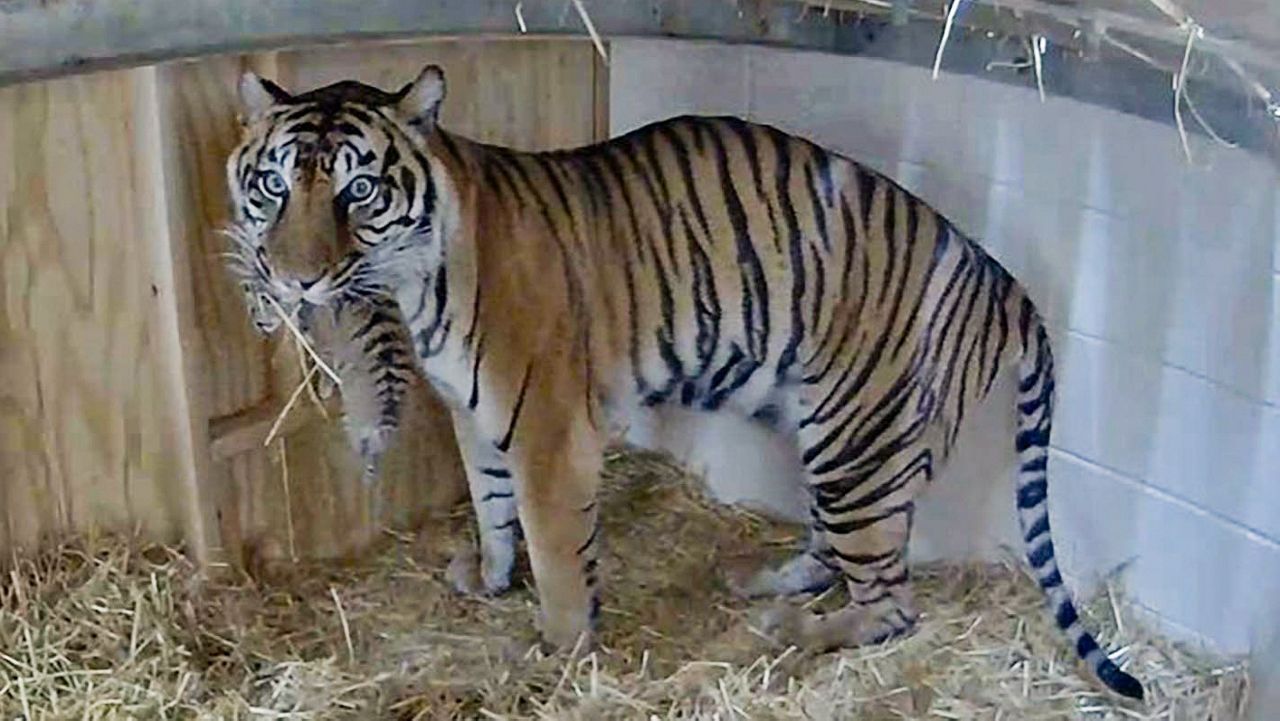LOUISVILLE, Ky. — The Louisville Zoo is welcoming a new Sumatran tiger cub, marking its first tiger birth in more than 20 years.
The cub was born July 23, 2024, at 7:40 p.m. and is the offspring of 16-year-old male Kami Sambal and 14-year-old female Jingga. Both Jingga and her newborn are thriving under the care of staff members, the zoo said, and she is demonstrating all the appropriate behaviors of an experienced mother.
While the newborn is behind the scenes, the zoo said it will soon announce plans for public viewing via its website and social media channels. Live viewing is available on the Zoo's Tiger Cub Cam at louisvillezoo.org/cubcam.
The zoo added a naming contest will be announced in the coming weeks. The last Sumatran tiger cubs born at the zoo were Leela, Jai and Mohan in April 2004, followed by two Siberian tiger cubs, Irisa and Anya, in Oct. 2004.
"It's been a long time since the zoo has welcomed a tiger cub to our extended family, and we are all excited by the arrival of this rare and endangered youngster," said Louisville Zoo Director Dan Maloney. "I commend the Islands and Animal Health teams for their efforts and invite our community to come celebrate with us as we watch this precious cub grow and progress."
For $99, guests can "adopt" the tiger cub through a special ADOPTS package including a mom and cub plushie, an adoption certificate, the adopter's name listed on the zoo's website, a colorful zoo magnet and two admission passes to the Louisville Zoo. More information can be found on louisvillezoo.org/adopts.
Sumatran tigers are critically endangered, and fewer than 400 are estimated to still survive in the wild, the zoo said. Found only in Sumatra, their habitat is primarily threatened by development for palm oil plantations. They are the last of the island tiger subspecies and are smaller than mainland tigers.
The zoo is open daily year-round except for Thanksgiving, Christmas and New Year's Day. Summer hours, which run through Sept. 22, are 10 a.m. to 5 p.m.



